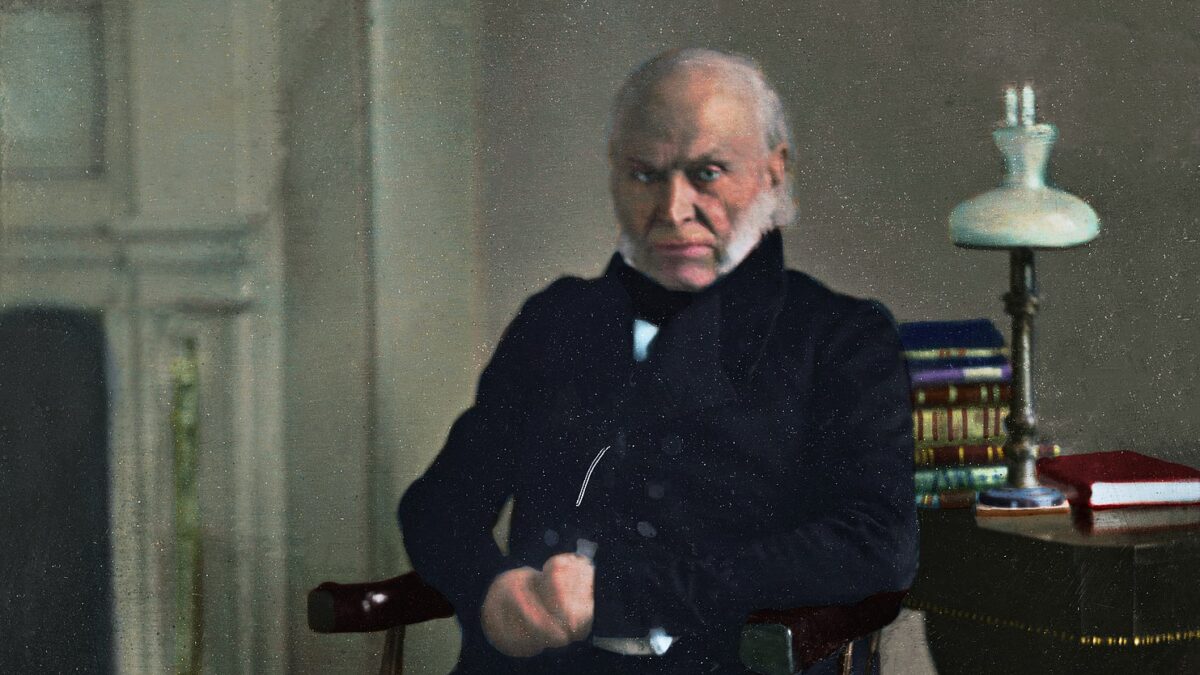It’s no secret that liberty is the focus of the political philosophy of the American founders. This political philosophy was once simply called “liberalism.” Today, it must be called “classical liberalism” to distinguish it from the illiberalism of leftists who advocate for government overreach in every area of life yet are allowed to get away with calling themselves “liberals.” The old liberalism has been co-opted by radical “progressivism,” a movement that emerged at the beginning of the 20th century and has since taken over the political left.
The term “liberal” comes from the Latin “liber” meaning “free.” There is not universal agreement about the origin of the original, proper usage of the term liberalism, but many thoughtful students of the subject believe Adam Smith was the inspiration. In a characteristic passage in his book “The Wealth of Nations,” he wrote of “allowing every man to pursue his own interest his own way, upon the liberal plan of equality, liberty, and justice.” No one has stated it better.
The founders’ liberalism is about American citizens living in liberty, pursuing their own interests their own way, unmolested by government. But the American founders had a policy of limited involvement in the affairs of other nations too. For the most part, America minded its own business and left other people to mind theirs. That policy was followed with scarcely a misstep by America’s leaders from the time of the founders through the presidency of Theodore Roosevelt. It succeeded spectacularly, and America rose among nations.
The election of Woodrow Wilson in 1912 bought an end to that policy and to the era of America’s peace among nations. America’s new “progressive” elite swiftly imposed a new foreign policy that rejected the principles that had worked so well — and plunged America into 11 disastrous decades of international discord.
This story is brilliantly told in Angelo Codevilla’s splendid book published this year, “America’s Rise and Fall Among Nations: Lessons in Statecraft from John Quincy Adams.” Codevilla begins with these words: “This book contrasts the successful foreign relations under presidents from George Washington to Theodore Roosevelt with the disarray resulting from Progressive management ever since.”
Although it was practiced by America’s leaders throughout her long era of peace with other nations, America’s original foreign policy was most clearly articulated by John Quincy Adams. Codevilla presents Adams’ view with simple clarity:
…just as others’ business, others’ quarrels, and others’ objectives are rightfully and inescapably their own, America is the sole, sovereign judge of its own business, of what our own safety and welfare require. This, Adams argued, is international law as well as common sense.
The focus of the classical liberalism of the American founders is the liberty of the American citizen, but classical liberalism also defined the proper conduct for America among other nations. In addition, it gave the founders a clear understanding of the purpose of the American military. Minding our own business among nations and having military strength sufficient to prevent other nations from meddling in our business are the two sides of the commonsense foreign policy of the founders.
Internationally, American leftists push to involve the federal government more and more in the affairs of other nations; domestically, they push to involve the federal government more and more in the private lives of Americans. Whether internationally or domestically, they are always striving to increase the reach of government. That is precisely the opposite of the founders’ vision.
Wilson tried and failed to get America into the League of Nations. The American people balked. They rejected progressivism’s fundamental foreign policy postulate. Codevilla puts it like this:
The American people rejected the self-contradictory notion that Wilson’s League of Nations could at once insure all would go to war for each, and that it would relieve each and all, especially Americans, of the need to go to war at all.
We today need to take a lesson from those earlier Americans and reject the globalist foreign policy that has dragged America into more conflicts abroad and more conflicts over foreign policy here at home. We also need to reject the changes to America those same leftists are imposing in their top-down war on the American people.
Throughout most of our history, Americans were dedicated to liberty at home and peace abroad. Sensible Americans understand that we must reverse what leftist “progressives” have been doing to the liberty of the American people here at home, but that is not enough. If we are going to prevent the globalist left from putting an end to the America the founders gave us, we must also put an end to their foreign policy.









